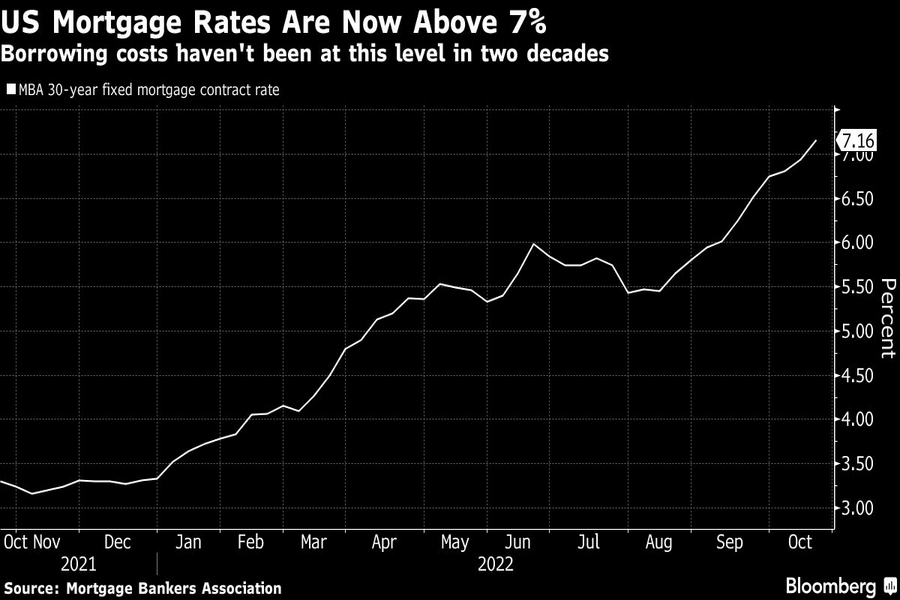

U.S. mortgage rates topped 7% for the first time in more than two decades, extending a string of steep increases that have stymied housing demand.
The contract rate on a 30-year fixed mortgage rose 22 basis points to 7.16% in the week ended Oct. 21, marking the 10th-straight increase, according to Mortgage Bankers Association data released Wednesday.

With rising mortgage rates, the group’s gauge of applications to purchase or refinance a home dropped for the 10th time in 11 weeks, falling by 1.7% to the lowest level since 1997.
The housing market — one of the most sensitive parts of the economy to changes in interest rates — has deteriorated rapidly this year as the Federal Reserve tightens policy to rein in inflation. Separate data Tuesday showed a measure of home prices in 20 large U.S. cities fell 1.3% in August on a month-over-month basis, the most since March 2009.
MBA’s index of applications to purchase a home slumped 2.3% to the weakest reading since early 2015, while the gauge of refinancing was little changed.
The MBA survey, which has been conducted weekly since 1990, uses responses from mortgage bankers, commercial banks and thrifts. The data cover more than 75% of all retail residential mortgage applications in the U.S.

A Texas-based bank selects Raymond James for a $605 million program, while an OSJ with Osaic lures a storied institution in Ohio from LPL.

The Treasury Secretary's suggestion that Trump Savings Accounts could be used as a "backdoor" drew sharp criticisms from AARP and Democratic lawmakers.

Changes in legislation or additional laws historically have created opportunities for the alternative investment marketplace to expand.

Wealth managers highlight strategies for clients trying to retire before 65 without running out of money.

Shares of the online brokerage jumped as it reported a surge in trading, counting crypto transactions, though analysts remained largely unmoved.
Orion's Tom Wilson on delivering coordinated, high-touch service in a world where returns alone no longer set you apart.
Barely a decade old, registered index-linked annuities have quickly surged in popularity, thanks to their unique blend of protection and growth potential—an appealing option for investors looking to chart a steadier course through today's choppy market waters, says Myles Lambert, Brighthouse Financial.
